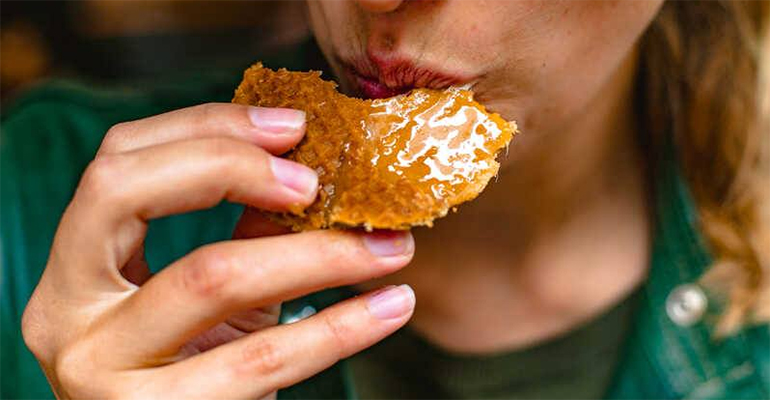Developing new food and drink products is a multi-step process that can span many months and involve hundreds of individuals, from R&D scientists to sensory specialists, procurement teams to marketing experts. This already complex process now has an additional challenge: the COVID-19 pandemic and consequent national lockdowns, social distancing, and supply chain hiccups.
California-headquartered product development consultancy Mattson conducted a survey in April this year, surveying 185 food and beverage industry professionals at the height of the pandemic’s first wave.
It found that innovation was continuing uninterrupted at most companies, with 67% of respondents saying they were working on new concepts while 65% were developing new products.
However, the vast majority (84%) said presenting new products was more challenging, and over half of launches that were planned for 2020 have been delayed.
The survey also revealed an almost even split in manufacturers’ confidence levels. About half of the manufacturers expected retailers to be eager to bring in new products after the crisis subsides while half expected them to be more tentative.
The ‘new normal’
With second waves of COVID-19 currently raging around the world and a vaccine nowhere in sight, adapting to the ‘new normal’ has become a necessity for individuals and businesses alike.
Zurich-headquartered start-up FlavorWiki says its platform is helping companies overcome some of the challenges of the product development process that have been intensified by COVID-19.
Combining sensory data and market insights onto a machine learning software, it says it can help food and beverage manufacturers evaluate consumer perception and preference in record time. The company started out working on flavour, texture, and taste but has since expanded to include criteria such as price, packaging, and positioning.
The patent-pending technology can also help connect suppliers and manufacturers who are no longer able meet to develop prototypes due to ongoing COVID-19 travel restrictions. Instead, they schedule virtual tasting and evaluation sessions, guided by FlavorWiki's white-labelled software.
CEO and founder of FlavorWiki Daniel Protz explained:
“Companies ship prototype samples and the evaluation of the product can be done on a smartphone on both [the manufacturer and supplier’s] side. They evaluate the samples using a simplified questionnaire both sensorially and hedonically, and the feedback and results are immediately generated in a report that they can share. It drives an interaction and discussion around the sample and how it can be improved.”
All these data are centralised onto one platform and can be aggregated with other data points. The result is a 360-degree consumer view that also helps standardise NPD practices for a more uniform and streamlined approach. This is particularly useful in multinational companies where operations can differ greatly from country to country, Protz said.
“This mission of connecting the dots between silos is starting to happen,” Protz said. “R&D folks are mostly focused on the food or the liquid matrix and want to understand the interaction of flavour, taste, mouthfeel and texture. I think the [additional] data we bring to the table is really enhancing for the R&D team whose task it is to create a better food product.
“They appreciate that purchase intent has other factors influencing it, which might even be bigger factors than the food itself. That influences in many ways their decisions about what to do, whereas if they were only focused on ‘we need to create a better food’, it might lead them to make investments that don’t make a difference.”
‘Connecting the dots’
According to Protz, the COVID crisis has helped FlavorWiki identify a new direction to take: using shopper insights to help consumers locate a product and help retailers identify where to place a product in-store.
“COVID created quite a few supply chain issues with stock-outs in different countries. What we understand is that there’s a lot of product out there but it’s not necessarily getting to the consumer. So, we want to make the whole connection and use our data model to find the right product-consumer fit, starting from product ideation to development to the launch and then ultimately to consumer acquisition. Having a great product doesn’t mean anything unless you sell it,” he added.
Moving beyond face-to-face trials
Packaging giant Tetra Pak has also spoken about some of the benefits it discovered in being forced to conduct product trials remotely due to COVID-19. It said virtual product development trials were as efficient as the traditional face-to-face approach if not more so.
“In some instances, they increased the customer involvement because without the need to travel, more customers could observe each trial. Overall, virtual trials save time and – obviously - cut carbon emissions,” Per-Erik Wahlgren, head of a Tetra Pak product development centre in Lund, Sweden, said at the end of August this year.
“The expansion of our virtual product development trials has proven to be beneficial, going from 10% to 100%. We predict that virtual trials will continue and partly replace some of our traditional face-to-face trials in the future. We will effectively be able to offer our customers two different but complementing experiences.”
An evolving consumer landscape
The uncertainty generated by COVID-19 means some companies prefer to put product innovation and renovation on hold. However, the pandemic has had such a profound and wide-reaching impact that it has changed what consumers are looking for in packaged goods. These evolving demands require product developers to keep up.
In a Q&A session on coronavirus-driven changes to consumer markets, one Euromonitor analyst said:
“The main thing to remember is that priorities have changed for all consumers: the focus is not on acquiring more but on living better, for example, with products to support the mind and body or fewer, better-quality items.”
Images courtesy of FlavorWiki


